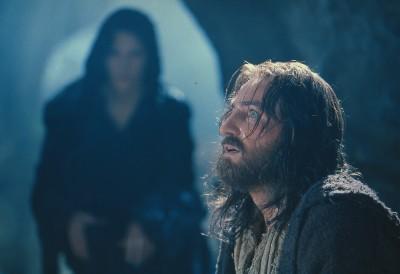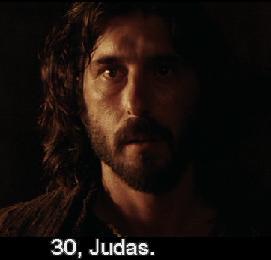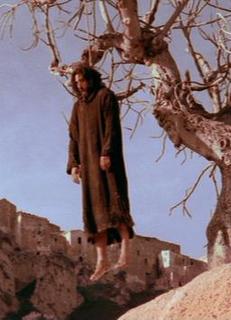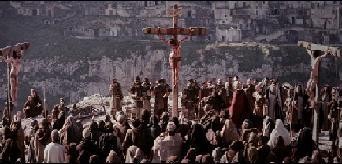At the Feet of Jesus
Divine Mercy
Way back in the time of the Church Fathers, the Sunday after Easter was known as Dominica in Albis, or Sunday in White (or Whitsunday). This was because at the Easter Vigil, the newly baptised Catholics were given a white garment which represented the new purity of their souls, which they would wear for the whole week of Easter. On Dominica in Albis, they took off their white robes and put them in a place of special remembrance for them. On this feast, St. Augustine would say to his parishioners at this moment, "Let not our interior purity be lessened as we set aside its exterior symbols." (#156, Dominica in Albis) St. Augustine calls these days "days of mercy and pardon" (# 156, Dominica in Albis) and the Sunday "the compendium of the days of mercy."
Moreover, my patron saint, St. Gregory of Nazianzus, one of the greatest Doctors of the Church, says that this Octave day of Easter is even a greater Feast than Easter though it takes nothing whatever away from the greatness of the Day of the Resurrection itself. Easter Sunday is the boundary between death and life (a creation). But its eighth day, the Octave, is the fulfillment of what Easter is all about - perfect life in eternity (a second creation, more admirable and more sublime than the first).
Over the centuries, however, the greatness of this feast was seemingly forgotten by the Church, until in the 1930's, Jesus Himself began appearing in visions to a Polish nun, St. Maria Faustyna of the Most Holy Eucharist (or just St. Faustina). He said to her,
However, the feast never came to be recognised by the Universal Church until April 30th, 2000--the date of St. Faustina's canonisation. And on this day, it was another Archbishop of Cracow who had the honours--though by now he was the Pope!
On May 13th, 1981, there was an assassination on Pope John Paul II's life. Critically wounded by a gunshot, he was taken to the hospital. While recovering there, the Pope had the Diary of St. Faustina re-read to him. Upon his recovery, he visited his would-be assailant in prison. After he left the prison, the media wanted to know what he and his assassin had talked about. But all the Pope said was that the details were between he and his assailant, but he did clearly state, "I have forgiven him as a brother and a friend."
This forgiveness of the Pope wasn't simply a pious platitude or the sanctimonious posturing of a "religious" man. It was genuine. As proof of this, Pope John Paul II kept up regular correspondence with the man and his family. He even urged prayer for his "brother". Toward the end of his battle with Parkinson's, John Paul II's former assailant actually wrote to wish him well in his illness, expressing hope that the Pope would live to carry on his work! This man, who formerly tried to kill the Pope, was deeply grieved on the day of his funeral, that he could not be allowed to go to Rome to mourn!
That is the power of mercy! And the example of the Pope's mercy on this man reminds us of Jesus' mercy for us. Jesus said that there is no greater love than to lay down one's life for his friends, but Romans tells us that Jesus laid down His life for His enemies, in order to make them friends! That unfathomable mercy is what the Pope declared we celebrate on Divine Mercy Sunday!
Now, of course, to discuss Mercy, we need to have a need for Mercy. In other words, Mercy is closely related to Forgiveness--and Forgiveness requires something to forgive. And all of us need forgiveness. We all need Mercy. Way back at the beginning, the original people, Adam and Eve, disobeyed God and lost the life of Grace that He created them to live in. But they didn't just lose that Grace for themselves; they lost it for all of us. This is the notion of Original Sin--that, in a sense, we have all been sold into slavery to sin. We inherit this slave-state just as the son of a slave is born into slavery. As slaves to sin, we're subject to its control in our lives--meaning, we can't simply blame Adam and Eve for ruining things for us, as though we don't have our own responsibility. As the Bible clearly tells us, we've all sinned. We all need to be set free.
And so, Jesus came, as He said, "not to be served, but to serve, and to give Himself as a ransom for many" (Matthew 20:28). Romans 11:32 tells us, "God has imprisoned all human beings in their own disobedience only to show mercy to them all." In other words, God allowed Adam and Eve to choose to disobey Him, in order to subject us all to our own disobedience, for the sole purpose of demonstrating the true, unfathomable greatness of His Divine Mercy to those who would accept it! At the Cross, Jesus paid the debt for our sins, to ransom us out of slavery and give us new life in Him. We find this Mercy for Sins at the foot of the Cross:
Jesus said precisely this to St. Faustina: "On the cross, the fountain of My mercy was opened wide by the lance for all souls – no one have I excluded!"
The divine Mercy that flows from Jesus' Heart--the Blood and Water--are emblematic of Baptism and the Eucharist, as He explained to St. Faustina, through which we receive the forgiveness of sins and special graces from God! This Divine Mercy is available to all of us, if we choose to appropriate it to ourselves!
What must we do, then?
We must come to the feet of Jesus, where the fountain of Mercy pours out. At the feet of Jesus our lives are transformed, just as was Thomas' in the Sunday Gospel. Jesus did not cast him away for his obstinate unbelief, but showed him His Merciful Heart, and forgave him!
That same forgiveness is available to us for the asking! And so we ask for mercy, in the Sacrament of Confession, which Jesus instituted upon His resurrection:
And so, our second response to this is one of Trust. When Jesus commissioned the Divine Mercy Image from St. Faustina, He said that it must be inscribed with the signature, "Jesus, I trust in You." He called this image, "a vessel with which they are to keep coming for graces to the fountain of mercy."
Amen.

We Fall DownThis weekend, we celebrated the Feast of Divine Mercy, which is a rather new feast in the Church, and yet, at the same time, a really old feast, too. It was added to the Liturgical Calendar by Pope John Paul II in 2000, and yet there are still many Catholics who don't know anything about it, so I thought I would begin with a brief history of the feast.
Words and Music by Chris Tomlin
We fall down
We lay our crowns
At the feet of Jesus
The greatness of
Mercy and Love
At the feet of Jesus
And we cry
Holy, Holy, Holy
And we cry
Holy, Holy, Holy
And we cry
Holy, Holy, Holy
Is the Lamb
Way back in the time of the Church Fathers, the Sunday after Easter was known as Dominica in Albis, or Sunday in White (or Whitsunday). This was because at the Easter Vigil, the newly baptised Catholics were given a white garment which represented the new purity of their souls, which they would wear for the whole week of Easter. On Dominica in Albis, they took off their white robes and put them in a place of special remembrance for them. On this feast, St. Augustine would say to his parishioners at this moment, "Let not our interior purity be lessened as we set aside its exterior symbols." (#156, Dominica in Albis) St. Augustine calls these days "days of mercy and pardon" (# 156, Dominica in Albis) and the Sunday "the compendium of the days of mercy."
Moreover, my patron saint, St. Gregory of Nazianzus, one of the greatest Doctors of the Church, says that this Octave day of Easter is even a greater Feast than Easter though it takes nothing whatever away from the greatness of the Day of the Resurrection itself. Easter Sunday is the boundary between death and life (a creation). But its eighth day, the Octave, is the fulfillment of what Easter is all about - perfect life in eternity (a second creation, more admirable and more sublime than the first).
Over the centuries, however, the greatness of this feast was seemingly forgotten by the Church, until in the 1930's, Jesus Himself began appearing in visions to a Polish nun, St. Maria Faustyna of the Most Holy Eucharist (or just St. Faustina). He said to her,
I am giving them the last hope of salvation; that is, the Feast of My Mercy. If they will not adore My mercy, they will perish for all eternity... tell souls about this great mercy of Mine, because the awful day, the day of My justice, is near.When St. Faustina told the Bishop of Cracow that Jesus wanted this feast instituted, she was told that there already was such a feast, and she shouldn't trouble herself or him with these things. Rebuffed, she reported this to Jesus the next time He appeared, and He answered, "And who knows anything about this feast? No one! Even those who should be proclaiming My mercy and teaching people about it often do not know about it themselves. That is why I want the image to be solemnly blessed on the First Sunday after Easter, and I want it to be venerated publicly so that every soul may know about it."
On that day the very depths of My tender mercy are open. I pour out a whole ocean of graces upon those souls who approach the found of My mercy. The soul that will go to Confession and receive Holy Communion shall obtain complete forgiveness of sins and punishment.
On that day all the divine floodgates through which grace flow are opened.
You will prepare the world for My final coming.
Before I come as a just Judge, I first open wide the door of my mercy. (Quotes taken from various locations in St. Faustina's Diary.)
However, the feast never came to be recognised by the Universal Church until April 30th, 2000--the date of St. Faustina's canonisation. And on this day, it was another Archbishop of Cracow who had the honours--though by now he was the Pope!
On May 13th, 1981, there was an assassination on Pope John Paul II's life. Critically wounded by a gunshot, he was taken to the hospital. While recovering there, the Pope had the Diary of St. Faustina re-read to him. Upon his recovery, he visited his would-be assailant in prison. After he left the prison, the media wanted to know what he and his assassin had talked about. But all the Pope said was that the details were between he and his assailant, but he did clearly state, "I have forgiven him as a brother and a friend."
This forgiveness of the Pope wasn't simply a pious platitude or the sanctimonious posturing of a "religious" man. It was genuine. As proof of this, Pope John Paul II kept up regular correspondence with the man and his family. He even urged prayer for his "brother". Toward the end of his battle with Parkinson's, John Paul II's former assailant actually wrote to wish him well in his illness, expressing hope that the Pope would live to carry on his work! This man, who formerly tried to kill the Pope, was deeply grieved on the day of his funeral, that he could not be allowed to go to Rome to mourn!
That is the power of mercy! And the example of the Pope's mercy on this man reminds us of Jesus' mercy for us. Jesus said that there is no greater love than to lay down one's life for his friends, but Romans tells us that Jesus laid down His life for His enemies, in order to make them friends! That unfathomable mercy is what the Pope declared we celebrate on Divine Mercy Sunday!
Now, of course, to discuss Mercy, we need to have a need for Mercy. In other words, Mercy is closely related to Forgiveness--and Forgiveness requires something to forgive. And all of us need forgiveness. We all need Mercy. Way back at the beginning, the original people, Adam and Eve, disobeyed God and lost the life of Grace that He created them to live in. But they didn't just lose that Grace for themselves; they lost it for all of us. This is the notion of Original Sin--that, in a sense, we have all been sold into slavery to sin. We inherit this slave-state just as the son of a slave is born into slavery. As slaves to sin, we're subject to its control in our lives--meaning, we can't simply blame Adam and Eve for ruining things for us, as though we don't have our own responsibility. As the Bible clearly tells us, we've all sinned. We all need to be set free.
And so, Jesus came, as He said, "not to be served, but to serve, and to give Himself as a ransom for many" (Matthew 20:28). Romans 11:32 tells us, "God has imprisoned all human beings in their own disobedience only to show mercy to them all." In other words, God allowed Adam and Eve to choose to disobey Him, in order to subject us all to our own disobedience, for the sole purpose of demonstrating the true, unfathomable greatness of His Divine Mercy to those who would accept it! At the Cross, Jesus paid the debt for our sins, to ransom us out of slavery and give us new life in Him. We find this Mercy for Sins at the foot of the Cross:
Carrying His own cross He went out to the Place of the Skull or, as it is called in Hebrew, Golgotha, where they crucified Him with two others, one on either side, Jesus being in the middle....(John 19:17-18, 31-37)John the Apostle watched as the Centurion pierced the Sacred Heart of Jesus, and the flood of water and blood that flowed out twigged in his mind the words of the prophet Zechariah, who prophesied:
It was the Day of Preparation, and to avoid the bodies' remaining on the cross during the Sabbath--since that Sabbath was a day of special solemnity--the Jews asked Pilate to have the legs broken and the bodies taken away. Consequently the soldiers came and broke the legs of the first man who had been crucified with Him and then of the other. When they came to Jesus, they saw He was already dead, and so instead of breaking His legs one of the soldiers pierced His side with a lance; and immediately there came out blood and water. This is the evidence of one who saw it--true evidence, and he knows that what he says is true--and he gives it so that you may believe as well. Because all this happened to fulfil the words of scripture:'Not one bone of His will be broken;'and again, in another place scripture says:'They will look to the one whom they have pierced.'
'But over the House of David and the inhabitants of Jerusalem I shall pour out a spirit of grace and prayer, and tehy will look to Me. They will mourn for the One whom they have pierced as though for an only child, and weep for Him as people weep for a first-born child. When that day comes, the mourning in Jerusalem will be as great as the mourning for Hadad Rimmon in the Plain of Meggido...Not only, Zechariah says, will they look upon the One they pierced (who is identified with God Himself, notably), but they will mourn for Him as they did at Meggido, when King Josiah (a major hero of the Jewish people) was killed in battle. And on top of all that, and from all that, the Fountain to cleans from Sin and Impurity will flow out! Divine Mercy--the blood and water from Jesus' Heart, flows out for the forgiveness of sin!
'When that Day comes, a fountain will be opened for the House of David and the inhabitants of Jerusalem, to wash sin and impurity away.' (Zechariah 12:10-11, 13:1)
Jesus said precisely this to St. Faustina: "On the cross, the fountain of My mercy was opened wide by the lance for all souls – no one have I excluded!"
The divine Mercy that flows from Jesus' Heart--the Blood and Water--are emblematic of Baptism and the Eucharist, as He explained to St. Faustina, through which we receive the forgiveness of sins and special graces from God! This Divine Mercy is available to all of us, if we choose to appropriate it to ourselves!
What must we do, then?
We must come to the feet of Jesus, where the fountain of Mercy pours out. At the feet of Jesus our lives are transformed, just as was Thomas' in the Sunday Gospel. Jesus did not cast him away for his obstinate unbelief, but showed him His Merciful Heart, and forgave him!
That same forgiveness is available to us for the asking! And so we ask for mercy, in the Sacrament of Confession, which Jesus instituted upon His resurrection:
He said to them again, 'Peace be with you.After saying this He breathed on them and said:'As the Father has sent Me,
so am I sending you.'
Receive the Holy Spirit.(John 20:21-23)To St. Faustina, Jesus said:
If you forgive anyone's sins,
they are forgiven;
if you retain anyone's sins,
they are retained.'
Souls that make an appeal to My mercy delight Me. To such souls I grant even more than they ask. I cannot punish even the greatest sinner if he makes an appeal to My compassion...Sometimes, though, Confession is an intimidating thing to go to. We sin, and we're ashamed. We don't want to tell anyone, especially not a priest!
When you approach the confessional, know this, that I Myself am waiting there for you. I am only hidden by the priest, but I Myself act in your soul. Here the misery of the soul meets the God of mercy. When you go to confession, to this fountain of My mercy, the Blood and Water which came forth from My Heart always flows down upon your soul and ennobles it. Every time you go to confession, immerse yourself entirely in My mercy with great trust, so that I may pour the bounty of My grace upon your soul.Or, we go, in humility, and receive forgiveness and graces to avoid sin in the future, but still, we manage to fall back into our old habits almost immediately! We can despair of God's generous forgiveness--but we must never do that!
Make your confession before Me. The person of the priest is, for Me, only a screen. Never analyze what sort of a priest it is that I am making use of; open your soul in confession as you would to Me, and I will fill it with My light.
No soul that has called upon My mercy has ever been disappointed.As the prophet Jeremiah wrote:
Surely Yahweh's mercies are not over,As long as we are willing to come in repentance to Jesus, He will welcome us and lavish us with His mercy!
His deeds of faithful love not exhausted;
every morning they are renewed;
great is His faithfulness! (Lamentations 3:22-23)
And so, our second response to this is one of Trust. When Jesus commissioned the Divine Mercy Image from St. Faustina, He said that it must be inscribed with the signature, "Jesus, I trust in You." He called this image, "a vessel with which they are to keep coming for graces to the fountain of mercy."
The graces of My mercy are drawn by means of one vessel only, and that is -- trust. The more a soul trusts, the more it will receive.And so we trust in Jesus, as Scripture says:
I let my Sacred Heart be pierced with a lance, thus opening wide the source of mercy for you. Come then with trust to draw graces from this fountain. I never reject a contrite heart.
Sooner would heaven and earth turn into nothingness than would My mercy not embrace a trusting soul.
Taste and see that Yahweh is good.Finally, in order to participate in the Divine Mercy that Jesus has for us, He tells us that we ourselves must be merciful:
How blessed are those who take refuge in Him. (Psalm 34:8)
Have mercy on me, God, have mercy on me,
for in You I trust. (Psalm 57:1)
We have put our trust in the living God and He is the Saviour of the whole human race but particularly of all believers. (1 Timothy 4:10)
Blessed are the merciful:On this point, Jesus is intensely serious when He speaks to St. Faustina:
they shall have mercy shown them. (Matthew 5:7)
I demand from you deeds of mercy which are to arise out of love for Me. You are to show mercy to your neighbours always and everywhere. You must not shrink from this or try to excuse yourself from it ... Even the strongest faith is of no avail without works.Scripture echoes this explicitly:
'When you stretch out your hands I turn My eyes away.Again, Jesus says to St. Faustina,
You may multiply your prayers, I shall not be listening.
Your hands are covered in blood,
wash, make yourselves clean.
Take your wrong-doing out of My sight.
Cease doing evil. Learn to do good,
search for justice, discipline the violent,
be just to the orphan, plead for the widow.
'Come, let Us talk this over,' says Yahweh.
'Though your sins are like scarlet,
they shall be white as snow;
though they are red as crimson, they shall be like wool.' (Isaiah 1:15-18)
If a soul does not exercise mercy in some way, it will not obtain My mercy on the day of judgment.Remember, that in Matthew 25:31-46, the sheep and the goats were separated, not by their faith in Jesus, but by the mercy that they showed to others! That is the true test of faith!
Spiritual Works of MercyLet us partake in the Event of God's Mercy! Let us Ask for Mercy in confession; let us Trust in Jesus for His unfailing forgiveness; and let us allow that Mercy, given to us, to flow out of us as it flows out of Jesus' Heart, in Acts of Mercy to others!
1. Instruct the Ignorant
2. Convert Sinners
3. Advise the Perplexed
4. Comfort the Sorrowful
5. Show Patience to Sinners
6. Forgive Others
7. Pray for the Living and the Dead
Corporal Works of Mercy
1. Feed the Hungry
2. Give Drink to the Thirsty
3. Clothe the Naked
4. Shelter the Homeless
5. Visit the Sick
6. Visit Prisoners
7. Bury the Dead
Amen.
Labels: Baptism, Confession, Divine Mercy, Easter, Eucharist, Good Works, Jesus





